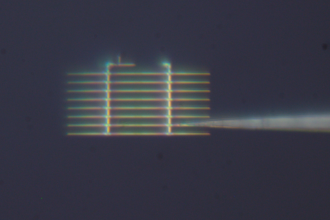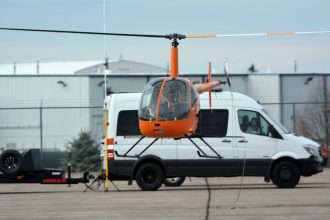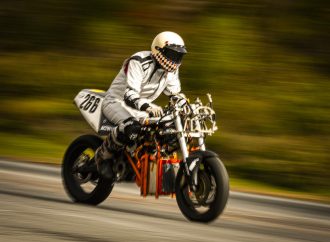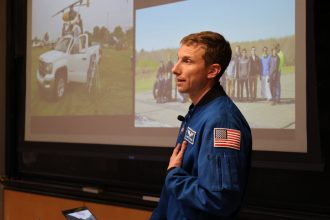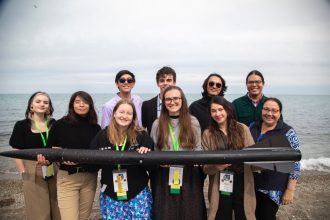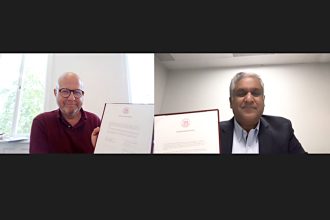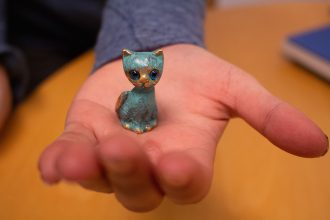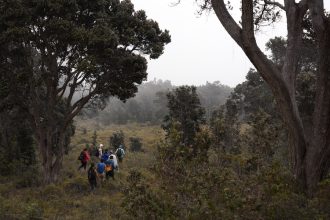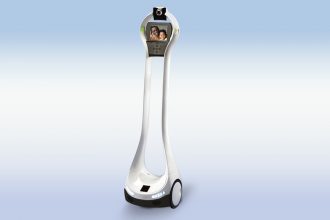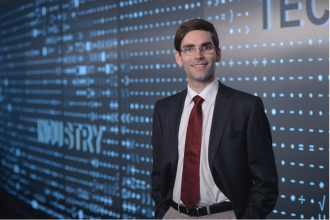Device could jumpstart work toward quantum internet
In research that could jumpstart work toward the quantum internet, researchers at MIT and the University of Cambridge have built and tested an exquisitely small device that could allow the quick, efficient flow of quantum information over large distances.
Safer skies with self-flying helicopters
In late 2019, after years of studying aviation and aerospace engineering, Hector (Haofeng) Xu decided to learn to fly helicopters. At the time, he was pursuing his PhD in MIT’s Department of Aeronautics and Astronautics, so he was familiar with the risks associated with flying small aircraft. But something about being in the cockpit gave Xu a greater appreciation of those risks. After a couple of nerve-wracking experiences, he was inspired to make helicopter flight safer.
The future of motorcycles could be hydrogen
MIT’s Electric Vehicle Team, which has a long record of building and racing innovative electric vehicles, including cars and motorcycles, in international professional-level competitions, is trying something very different this year: The team is building a hydrogen-powered electric motorcycle, using a fuel cell system, as a testbed for new hydrogen-based transportation.
How to be an astronaut
The first question a student asked Warren “Woody” Hoburg ’08 during his visit to MIT's Department of Aeronautics and Astronautics (AeroAstro) this November was: “It seems like there’s no real way to know if being an astronaut is something you could really do. Are there any activities we can try out and see if astronaut-related things are something we might want to do?”
The Beaver visits Father Sky: Meet MIT’s First Nations Launch team
Earlier this year, MIT’s First Nations Launch team participated in the 2023 First Nations Launch, an international NASA-Artemis Student Challenge hosted by the Wisconsin Space Grant Consortium that focuses on Indigenous representation and science in aerospace engineering through rocketry. It was the first time MIT has ever competed in this challenge, now in its 15th year.
Novo Nordisk supports MIT postdocs working at the intersection of AI and life sciences
MIT’s School of Engineering and global health care company Novo Nordisk today announced the launch of a multi-year program to support postdoctoral fellows conducting research at the intersection of AI and data science with life sciences. The MIT-Novo Nordisk Artificial Intelligence Postdoctoral Fellows Program will welcome its first cohort of up to 10 postdoctoral fellows for a two-year term this fall. The program will provide up to $10 million for an annual cohort of up to 10 postdoctoral fellows for two-year terms.
Coming soon to the Infinite Corridor: A space to explore the infinitesimal
It started with a cat. A figurine kitty with a blue-green patina that indicated it was made of copper that had oxidized.
But was it? Maria Aguiar, a sophomore in the Department of Materials Science and Engineering (DMSE), didn’t know. So back in December, she told her mechanics class instructor about the figurine, a souvenir from a friend who had visited Greece.
Fieldwork class examines signs of climate change in Hawaii
When Joy Domingo-Kameenui spent two weeks in her native Hawaii as part of MIT class 1.091 (Traveling Research Environmental eXperiences), she was surprised to learn about the number of invasive and endangered species. “I knew about Hawaiian ecology from middle and high school but wasn’t fully aware to the extent of how invasive species and diseases have resulted in many of Hawaii’s endemic species becoming threatened,” says Domingo-Kameenui.
Using robotics to supercharge health care
Since its founding in 1998, Vecna Technologies has developed a number of ways to help hospitals care for patients. The company has produced intake systems to respond to Covid-19 patient surges, prediction systems to manage health complications in maternity wards, and telepresence robots that have allowed sick people to stay connected with friends and loved ones.
Tomás Palacios named new Director of the Microsystems Technology Laboratories (MTL)
The Microsystems Technology Laboratories (MTL) will now be helmed by a new director. Maria Zuber, Vice President of Research and E.A. Griswold Professor of Geophysics and Anantha Chandrakasan, dean of the School of Engineering and the Vannevar Bush Professor of Electrical Engineering and Computer Science, recently announced that Tomás Palacios assumed the role of Director of MTL on December 1, 2022. Palacios has served as Director of the 6-A MEng Thesis Program; Industry Officer; and Professor of Electrical Engineering within the Department of Electrical Engineering and Computer Science (EECS). He succeeds Advanced Television and Signal Processing (ATSP) Professor Hae-Seung (Harry) Lee, who has been the Director of MTL since 2019.
